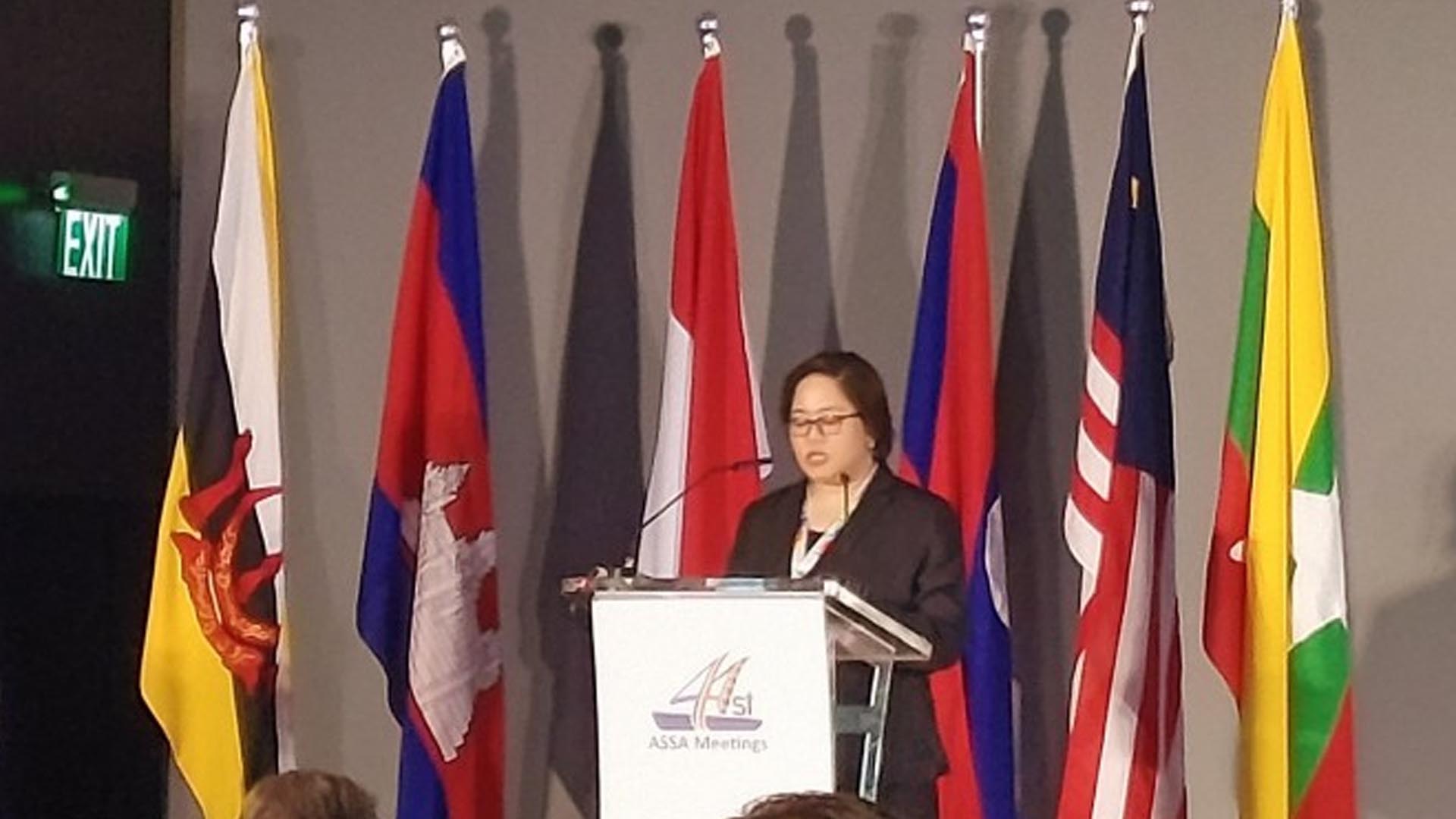The Asian Development Bank (ADB) urged governments in the Asia Pacific to implement several initiatives to achieve a gender-responsive social security in the region.
ADB Gender Equality Division, Climate Change and Sustainable Development Gender Officer Rachel Mary Anne Basas said these measures include extending social protection to informal workers and addressing unpaid work by investing in subsidized care services such as childcare, eldercare and disability care to reduce the burden on women.
In her presentation at the 41st ASEAN Social Security Association (ASSA) Conference and Board Meetings held at the Seda Manila Bay Hotel in Parañaque City, Basas urged governments to raise awareness about the availability of social security benefits particularly for women in rural and marginalized communities, involve men in caregiving, financial decision-making, and gender-based violence prevention, expanding access to affordable childcare and early childhood education services and providing financial support for women in vulnerable situations.
Basas, citing a study released by the ADB in 2015, said that for Asia and the Pacific, results of the study indicated that generally, women were less protected than men.
“Social protection expenditures are higher for men than for women in both developed and developing countries,” she said.
On social insurance, Basas said that except for North and Central Asia, women were also less covered than men.
“And now, 2024 almost a decade, there are still gender gaps affecting social protection and medical coverage,” Basas said.
Citing a 2024 International Labour Organization (ILO) study titled World Social Protection Report, Basas said social protection coverage in the Asia Pacific still reflects significant gender inequality.
For the Philippines, Basas noted that the government’s Pantawid Pamilyang Pilipino Program (4Ps) helped address some of the gender gaps in social protection.
The 4Ps is the government’s national poverty reduction strategy and human capital investment program that provides conditional cash transfer to poor households for a maximum period of seven years, to improve health, nutrition and education.
Gender dimensions in social protection addressed by 4Ps include health and maternal care; education; and intrahousehold resource distribution, Basas said.
The 4Ps also includes family development sessions focused on equipping women with knowledge on gender issues, health and family planning.
The program also included efforts to engage men in gender equality initiatives.
Aside from 4Ps, Basas lauded the Philippines’ move to expand the maternity leave law to 105 days.
“The Philippines is one of the most progressive in the Asia Pacific region, and not all countries in this region can enable mothers to have that kind of number of days for a maternity leave,” she said. (PNA)









